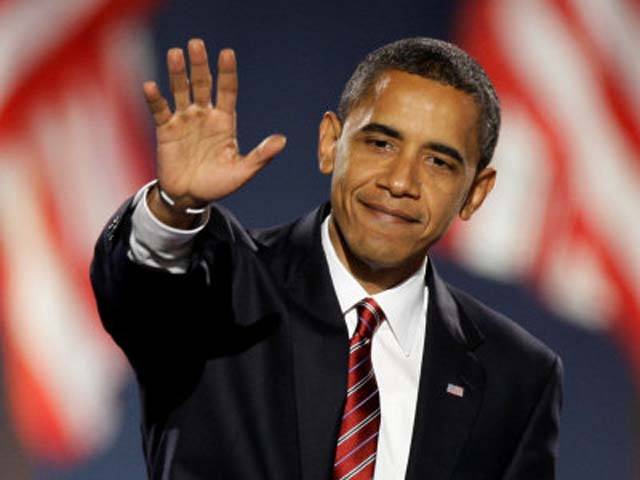WASHINGTON - President Barack Obama has signed a $662 billion national defence authorisation bill into law that, among other sweeping measures, freezes $700 million in aid to Pakistan until Islamabad gives assurances it is helping fight the spread of improvised explosive devices (IEDs).
While signing the bill on Saturday the New Year eve in Honolulu, where he is on year-end vacation, the president expressed many reservations about some of its provisions. He cited a litany of disagreements with various provisions of the bill after stating “the fact that I support this bill as a whole does not mean I agree with everything in it.” “I have signed this bill despite having serious reservations with certain provisions that regulate the detention, interrogation and prosecution of suspected terrorists,” Mr Obama said in a statement after signing the bill.
The bill for the year 2012 seeks to suspend 60 percent of $1.1 billion US military aid to Pakistan under the category Pakistan Counterinsurgency Fund till the secretaries of State and Defence report to the Congress that Islamabad is making progress in the war against terrorism particularly progress in strategies to counter IEDs.
However, Obama in his signing statement made no specific reference to this provision of the bill, which had drawn widespread condemnation in Pakistan that added more strain to the already tense Islamabad-Washington relationship.
The Obama Administration has maintained that the bill under no circumstances results in suspension of US military aid to Pakistan, as being interpreted in Pakistan. US officials insist that the Department of Defence and the State Department would work with the government of Pakistan to meet the requirements of the bill.
The officials said that, however, there are no conditions on Pakistan under the bill, even as there are requirements that the Obama Administration needs to meet, before the 60 percent of the $1.1 billion US military aid to Pakistan could be disbursed.
Under the provision of the bill, the Defence Secretary is also required to submit a report to the Congress on a discussion of US strategic objectives in Pakistan; a listing of the terrorist or extremist organisations in the country opposing US goals and against which the US encourages it to take action. The report will also include discussion of the gaps in capabilities of Pakistani security units that will hamper the ability of Pakistan to take action against those organisations.
The bill signed by Obama also applies penalties against Iran’s central bank in that it called for an effort to hamper Tehran’s ability to fund its nuclear enrichment programme. The Obama administration is looking to soften the impact of those penalties because of concerns that they could lead to a spike in global oil prices or cause economic hardship on US allies that import petroleum from Iran.
The administration officials said Obama was only signing the measure because Congress made minimally acceptable changes that no longer challenged the president’s terrorism-fighting ability.
Obama’s signature caps months of wrangling over how to handle captured terror suspects without violating Americans’ constitutional rights. The White House initially threatened to veto the legislation but dropped the warning after Congress made last-minute changes.
Among the changes the administration secured was striking a provision that would have eliminated executive branch authority to use civilian courts for trying terrorism cases against foreign nationals.
The new law now requires military custody for any suspect who is a member of al-Qaeda or “associated forces” and involved in planning or attempting to carry out an attack on the United States or its coalition partners. The president or a designated subordinate may waive the military custody requirement by certifying to Congress that such a move is in the interest of national security.
The administration also pushed Congress to change a provision that would have denied US citizens suspected of terrorism the right to trial and could have subjected them to indefinite detention. Lawmakers eventually dropped the military custody requirement for US citizens or lawful US residents.
“My administration will not authorise the indefinite military detention without trial of American citizens,” Obama said in the signing statement. “Indeed, I believe that doing so would break with our most important traditions and values as a nation.”
Friday, April 19, 2024
Obama signs bill freezing Pak aid

12:00 PM | April 19, 2024
Minister reviews naan, roti prices
April 19, 2024
ETPB land worth Rs 40b retrieved so far
April 19, 2024
Lahore revamping plan to complete by June 30
April 19, 2024
CCPO reviews security for by-elections, NZ cricket matches
April 19, 2024
A Tense Neighbourhood
April 19, 2024
Dubai Underwater
April 19, 2024
X Debate Continues
April 19, 2024
Hepatitis Challenge
April 18, 2024
IMF Predictions
April 18, 2024
Kite tragedy
April 19, 2024
Discipline dilemma
April 19, 2024
Urgent plea
April 19, 2024
Justice denied
April 18, 2024
AI dilemmas unveiled
April 18, 2024
ePaper - Nawaiwaqt
Advertisement
Nawaiwaqt Group | Copyright © 2024





